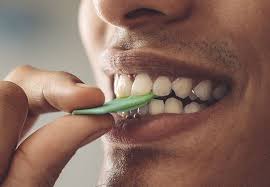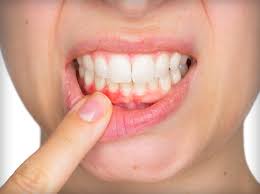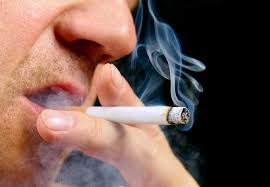At some point in our lives, we’ve all experienced the unpleasant effects of bad breath. Bad breath, often known as halitosis, can be humiliating and make us avoid social situations. The toothbrush is usually the first line of defense against bad breath; brushing your teeth at least twice a day is recommended to keep your mouth clean and your breath fresh. But what if the condition lingers after you’ve brushed your teeth? After brushing, a variety of factors can contribute to poor breath.
1. Dry mouth
 A lack of saliva may contribute to bad breath when bacteria accumulate in your mouth. Dry mouth can be caused by a lack of water intake throughout the day, as well as certain medical conditions or drugs. If you think your bad breath is due to dry mouth, drink more water throughout the day and consult your dentist or doctor if the problem persists.
A lack of saliva may contribute to bad breath when bacteria accumulate in your mouth. Dry mouth can be caused by a lack of water intake throughout the day, as well as certain medical conditions or drugs. If you think your bad breath is due to dry mouth, drink more water throughout the day and consult your dentist or doctor if the problem persists.
2. Gum disease and cavities
 Bacteria that cause bad breath can hide in your teeth cavities. Because the bacteria is buried in places you can’t reach when you clean your teeth, it’s tough to get rid of it. These bacteria can also be found in deep pockets produced by gum disease.
Bacteria that cause bad breath can hide in your teeth cavities. Because the bacteria is buried in places you can’t reach when you clean your teeth, it’s tough to get rid of it. These bacteria can also be found in deep pockets produced by gum disease.
3. Medical condition
Long-lasting bad breath could be caused by sinus infections, strep throat, acid reflux, and other systemic problems. Because the mouth has been properly termed as the “portal to the body,” visit your doctor and share your worries if you suspect your halitosis is caused by a health risk.
4. Certain foods Onions and garlic, for example, might linger on your breath even after you’ve brushed your teeth. Garlic breath, for example, can take a day or more to disappear. Once the garlic enters your stomach, the oils move through your circulation and into your lungs, where they can be inhaled. Researchers discovered that raw apple, raw lettuce, and mint leaves might deodorize garlic breath in a 2016 studyTrusted Source.
Onions and garlic, for example, might linger on your breath even after you’ve brushed your teeth. Garlic breath, for example, can take a day or more to disappear. Once the garlic enters your stomach, the oils move through your circulation and into your lungs, where they can be inhaled. Researchers discovered that raw apple, raw lettuce, and mint leaves might deodorize garlic breath in a 2016 studyTrusted Source.
5. Tonsil stones
Tonsil stones form when material in your tonsils, such as food and dead cells, accumulates and hardens, or “calcifies,” into little white structures. They are sometimes visible and sometimes not, although they rarely cause major difficulties. However, poor breath is the most prevalent symptom of tonsil stones. Bacteria can grow in the confined trash, causing a bad odor.
6. Smoking
 Smoking is bad for you breath, not just your breath but also your health. Smoking cause bad breath. It can also make your mouth dry, putting you at risk of gum disease. Bad breath can be caused by both dry mouth and gum disease.
Smoking is bad for you breath, not just your breath but also your health. Smoking cause bad breath. It can also make your mouth dry, putting you at risk of gum disease. Bad breath can be caused by both dry mouth and gum disease.

 Health5 days ago
Health5 days ago
 Entertainment7 days ago
Entertainment7 days ago
 Crime5 days ago
Crime5 days ago
 Education7 days ago
Education7 days ago
 Health7 days ago
Health7 days ago
 Comments and Issues6 days ago
Comments and Issues6 days ago
 Football6 days ago
Football6 days ago
 Latest6 days ago
Latest6 days ago

